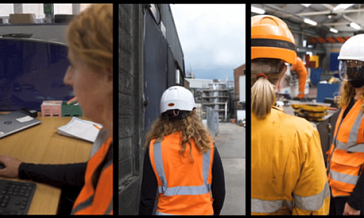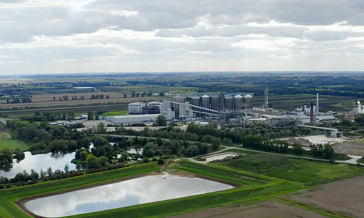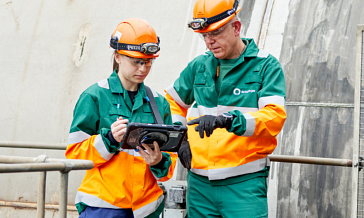
Latest blogs
All recent blogs from British Sugar
British Sugar driving carbon emission reductions
17 November 2022

At British Sugar, we‘ve pledged to reduce our carbon footprint by 30% by 2030 in line with the Science Based Targets initiative (SBTi).
“We’ve all got ambitious targets to meet as we strive to reduce our emissions, and we know our customers are also working hard to make reductions in their own businesses and across their supply chains. We’re here to help on that journey and I’m proud to say we’ve taken 42,000 tonnes of CO2 out of our operations since making our 2030 commitments in 2018. And there is much more to come. We have ambitious plans to continue to reduce our C02 emissions, support our customers' scope 3 targets and collectively make the food and drinks industry more sustainable,” commented Scott Sutton, Head of Sales at British Sugar.
British Sugar first published data on its energy efficiency back in 1980 and has done so ever since to transparently track its progress.
Philip McNaughton, Company Environment Manager at British Sugar, said: “Over the past 40 years, we’ve maintained a steady focus, day-in-day-out, on making the big and small changes across our business to boost energy efficiency wherever we can. Today, our Wissington factory requires around half the energy needed to produce one tonne of sugar 40 years ago. . And, across British Sugar, we have reduced our energy consumption per tonne by 48%.[1] This is thanks to continued focus on innovation, investment and finding ways to boost energy efficiency and fuel switching. Over the past five years, we have invested in, amongst other things, Combined Heat and Power plants, the most advanced evaporator technology and Anaerobic Digestion, and we have much more planned.”
Across British Sugar, our four plants, commonly referred to as ‘bio-refineries’, now create a diverse range of sugar and non-sugar products to reduce waste and improve our carbon footprint all from a natural raw material, sugar beet. Not only do we produce products such as animal feed and ethanol, but we also generate renewable energy, utilising biomethane from our fermented sugar beet pulp to generate electricity which feeds into the national grid. The low-grade heat generated as part of our operations even helps to grow medicinal cannabis for use in children’s medicine.
“Combined with the small improvements that we’re making on a continuous basis, we’re making big strides but we know the hard work doesn’t stop there. Today, we have around 12 projects in place across our operations, which are set to reduce our greenhouse gas emissions by more than 40,000 tonnes a year. These range from implementing steam reduction projects at our Bury St Edmunds and Wissington plants, to reducing pressed pulp drying across all sites. Approximately 40% of these reductions will come from process optimisation, 30% from energy efficiency measures and the remaining 30% from switching from coal to gas”, commented Philip McNaughton.
We are proud of the efficiencies we have made across our supply chain. Today, British Sugar produces as much sugar as it did 20 years ago on 90,000 fewer hectares of land. But the journey continues. We’re constantly looking for the efficiencies that will make our business more sustainable and working with partners across our supply chain to help deliver improved environmental performance in farms and factories. At every stage of the sugar making process, we want to do all we can to protect our planet for the future. We’ll be sharing more as we advance along our industry’s collective decarbonisation journey.
 The Anaerobic Digestion plant at our Bury St Edmunds site
The Anaerobic Digestion plant at our Bury St Edmunds site
[1] ABF Responsibility Report 2022, p. 32-33
Notes to editors:
For more information on British Sugar’s performance over the past year, you can read the 2022 ABF Responsibility Update here, together with the latest ESG insights.
Read about our Anaerobic Digestion plant here.




